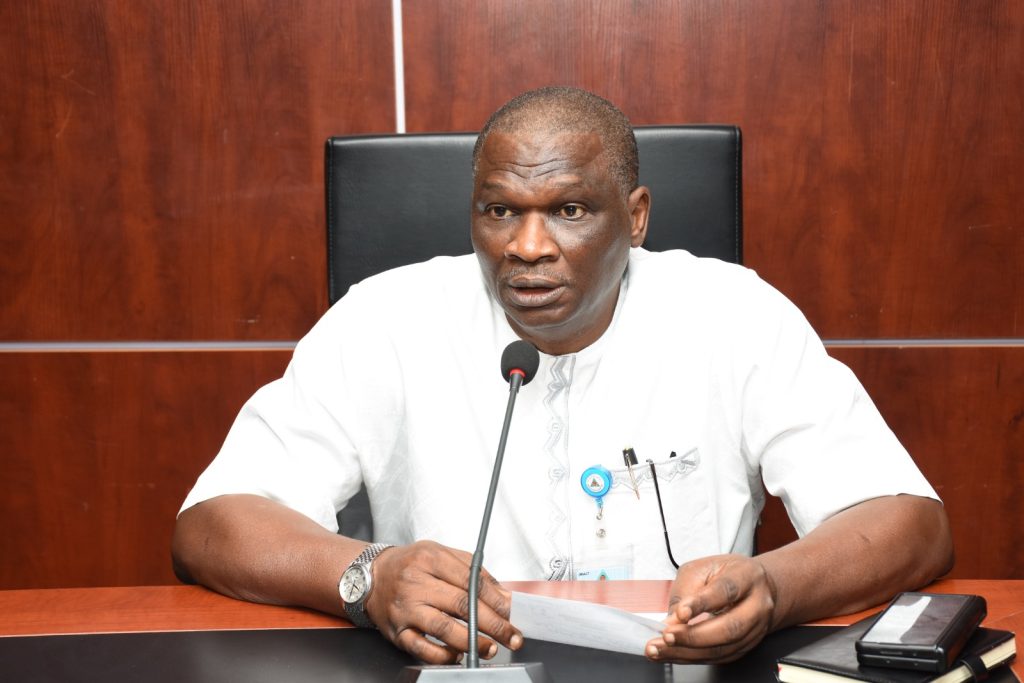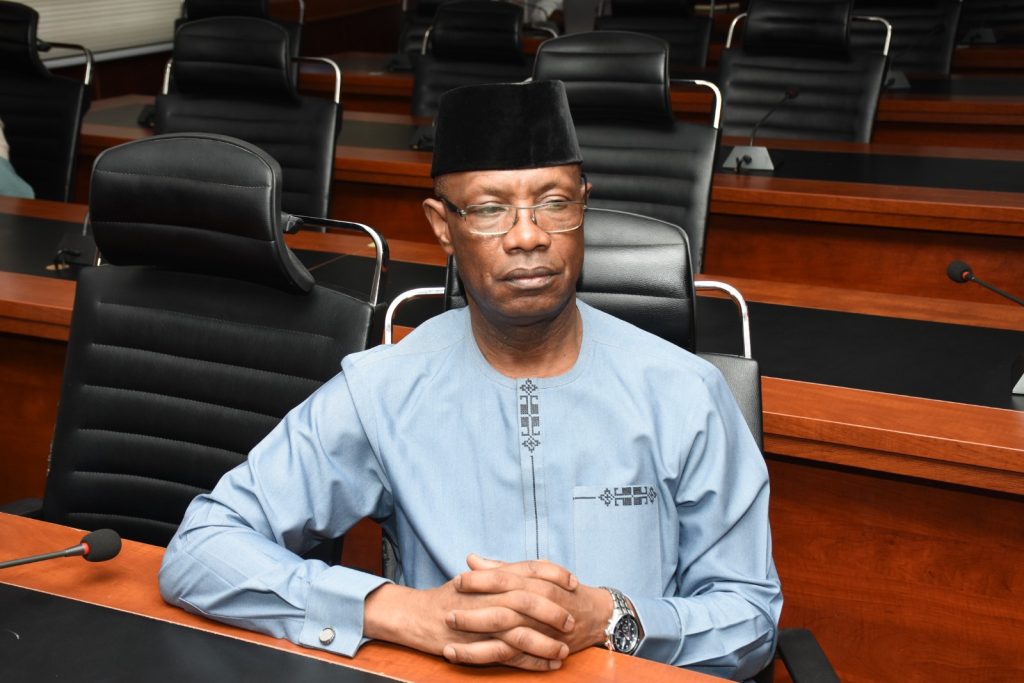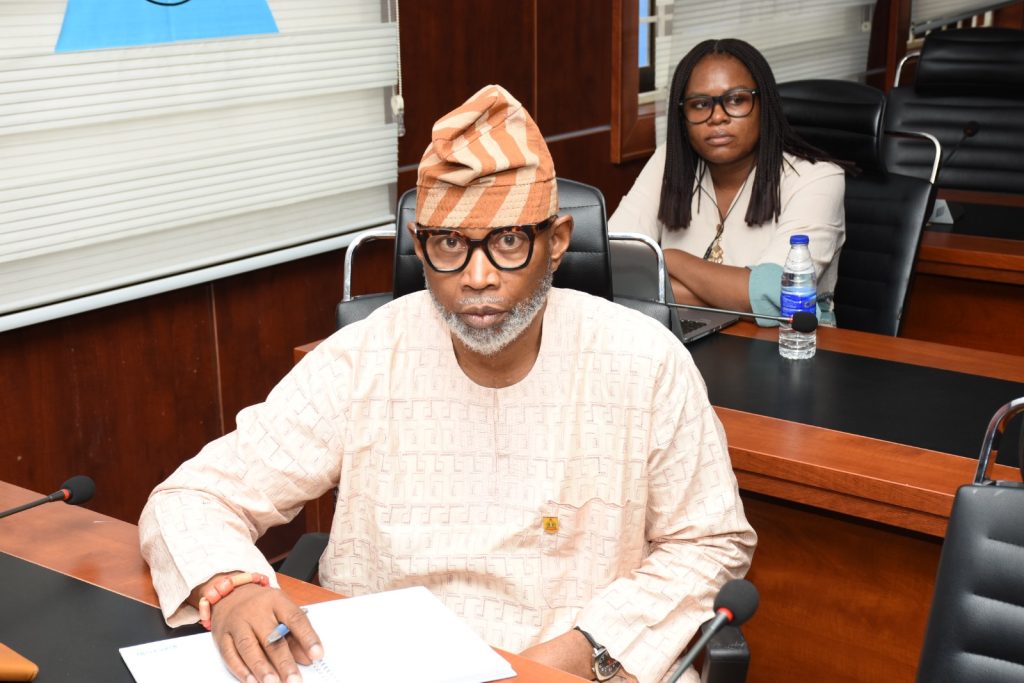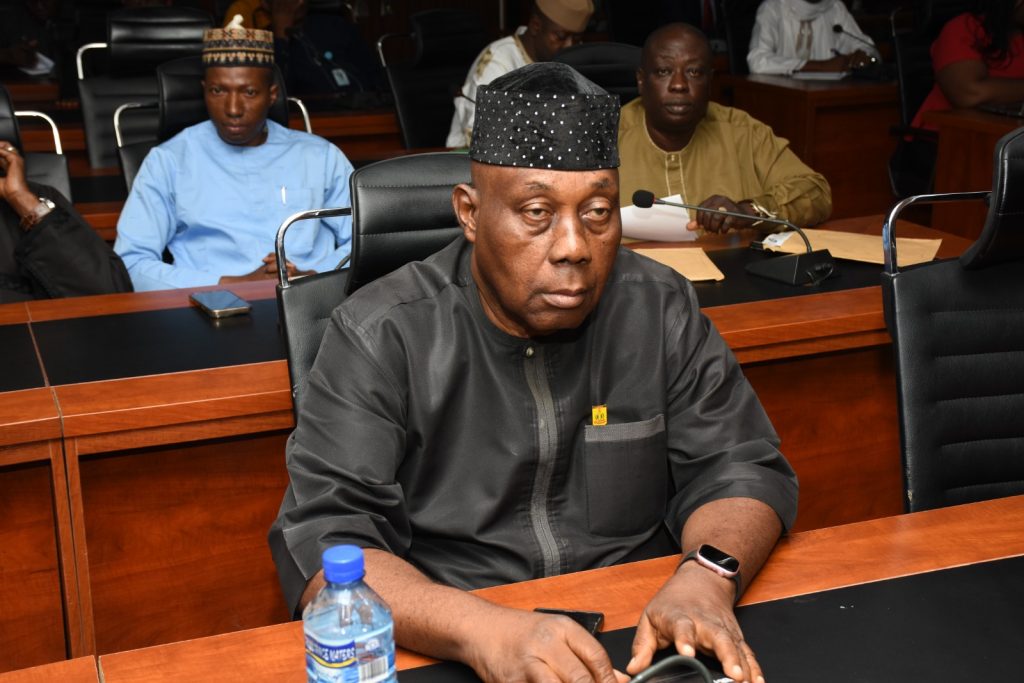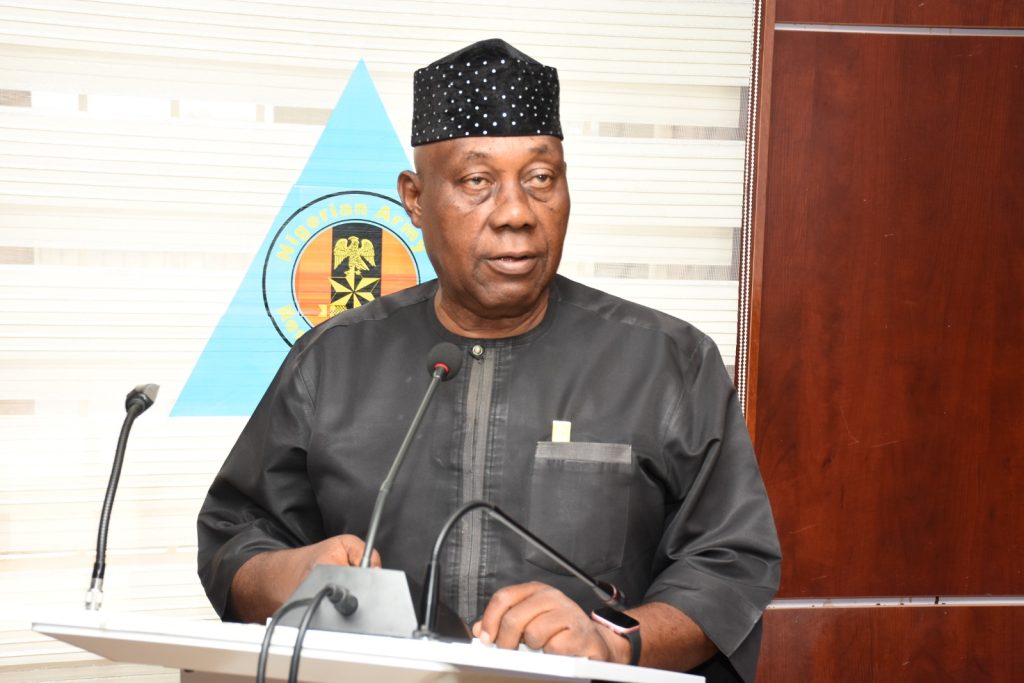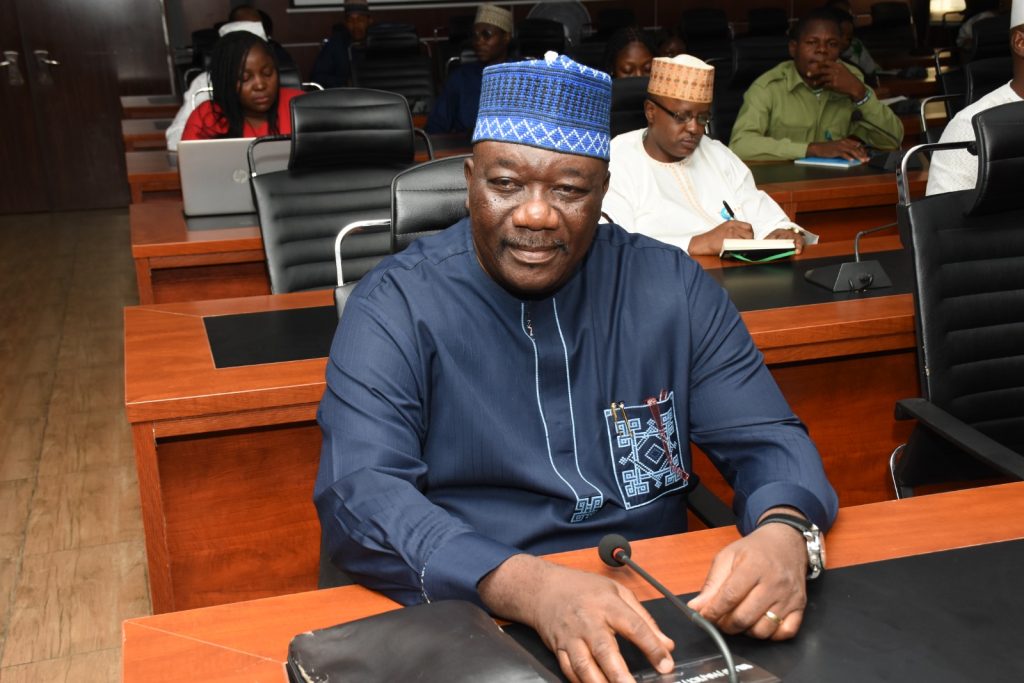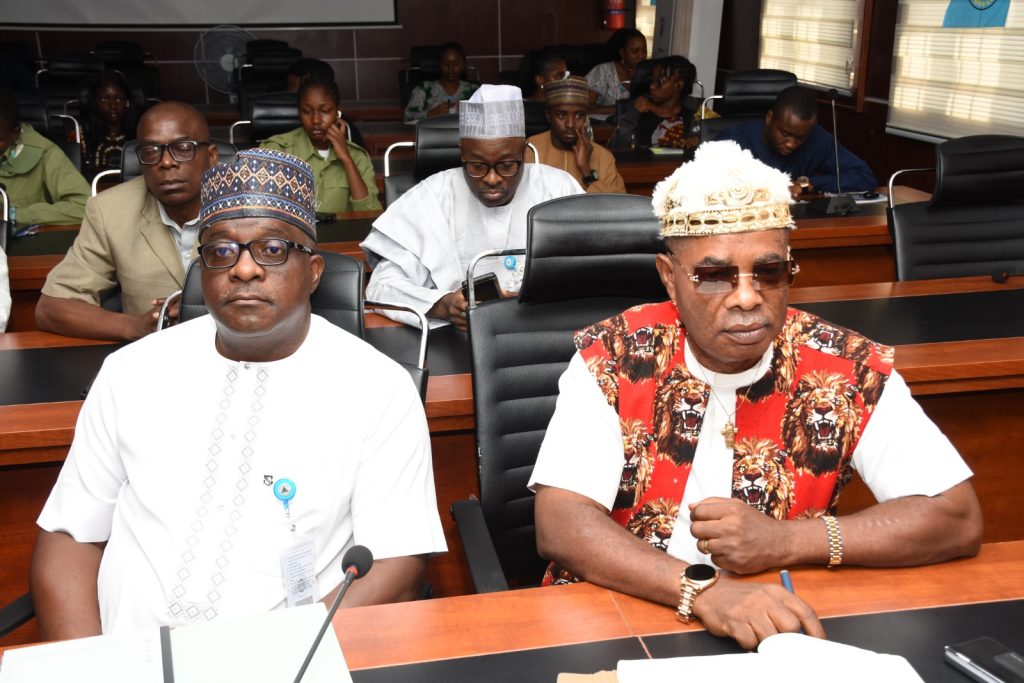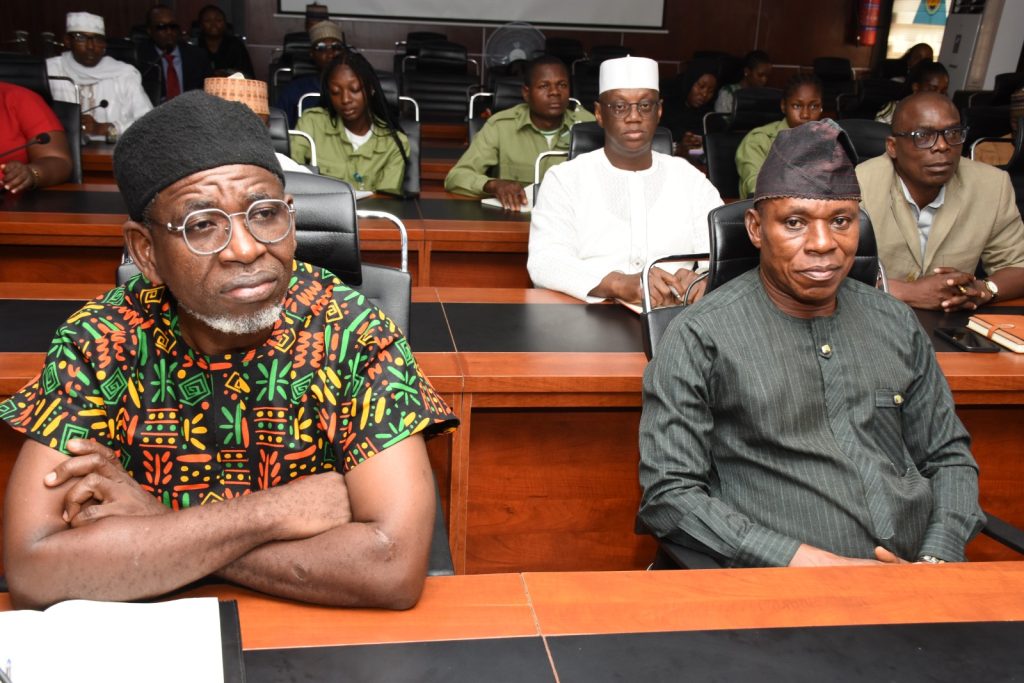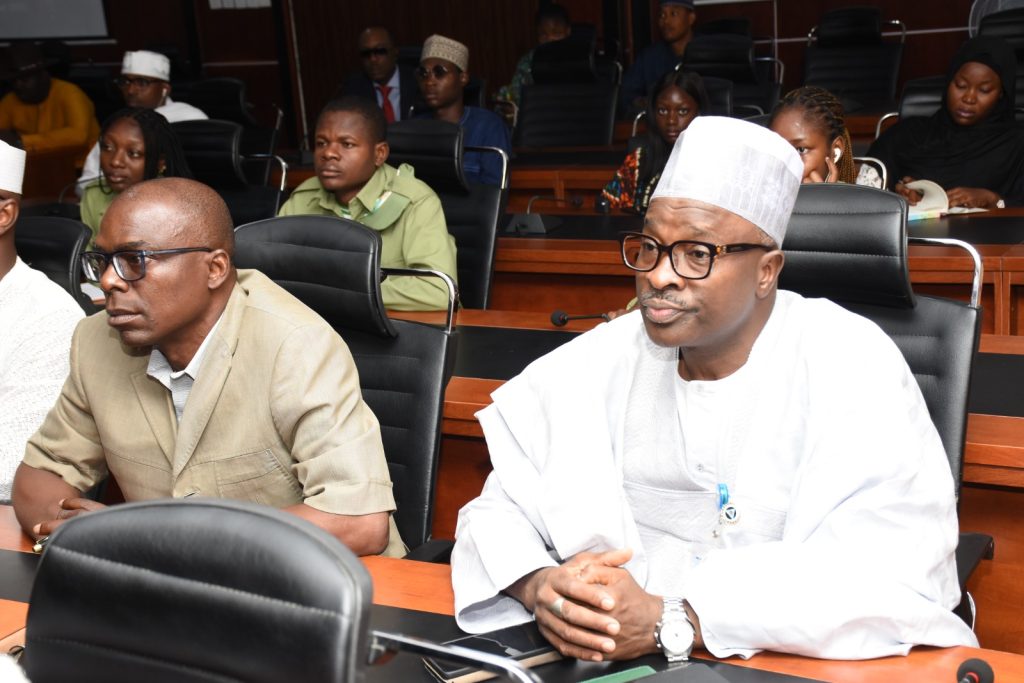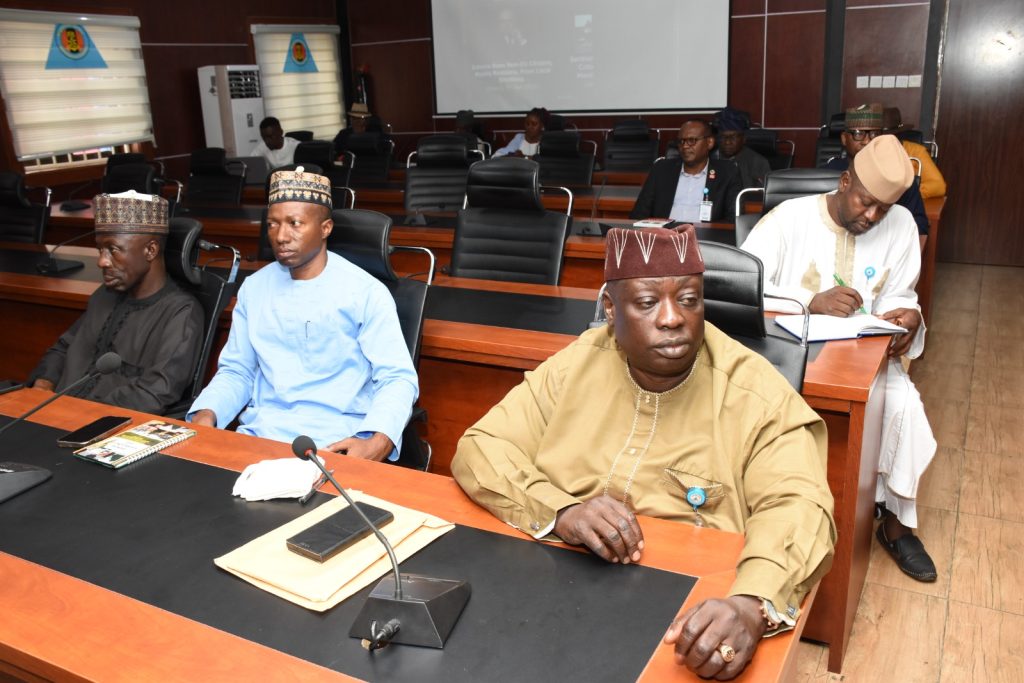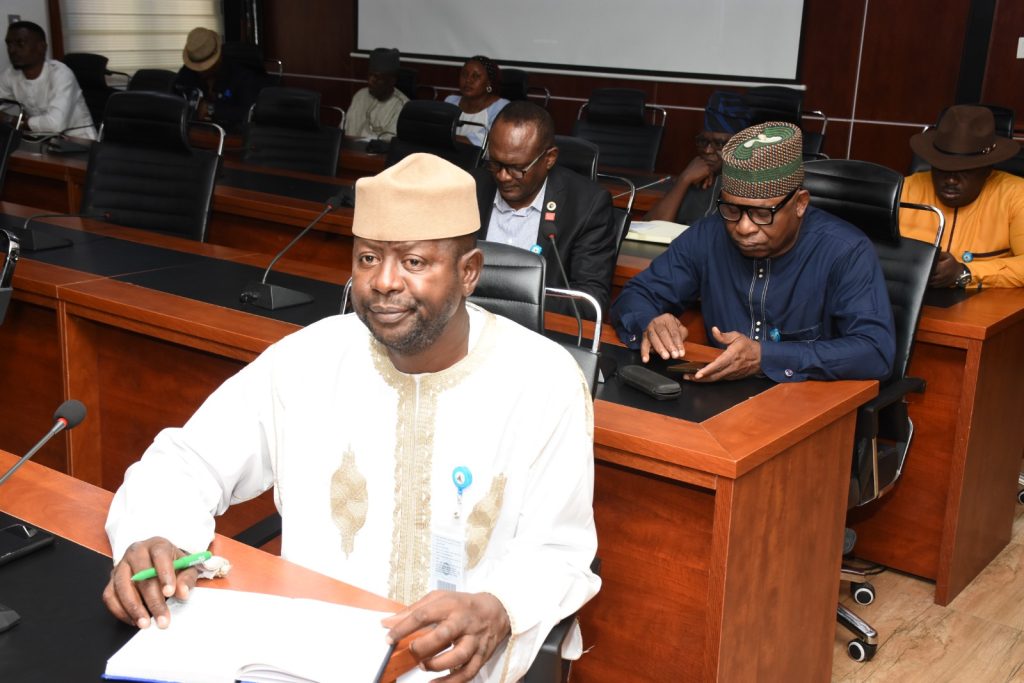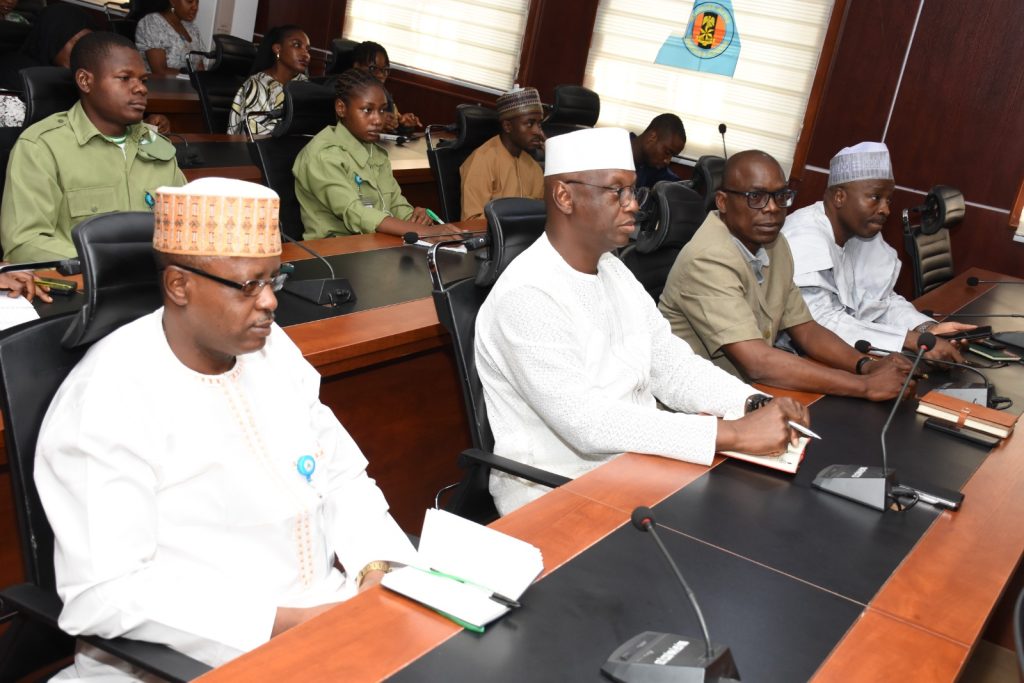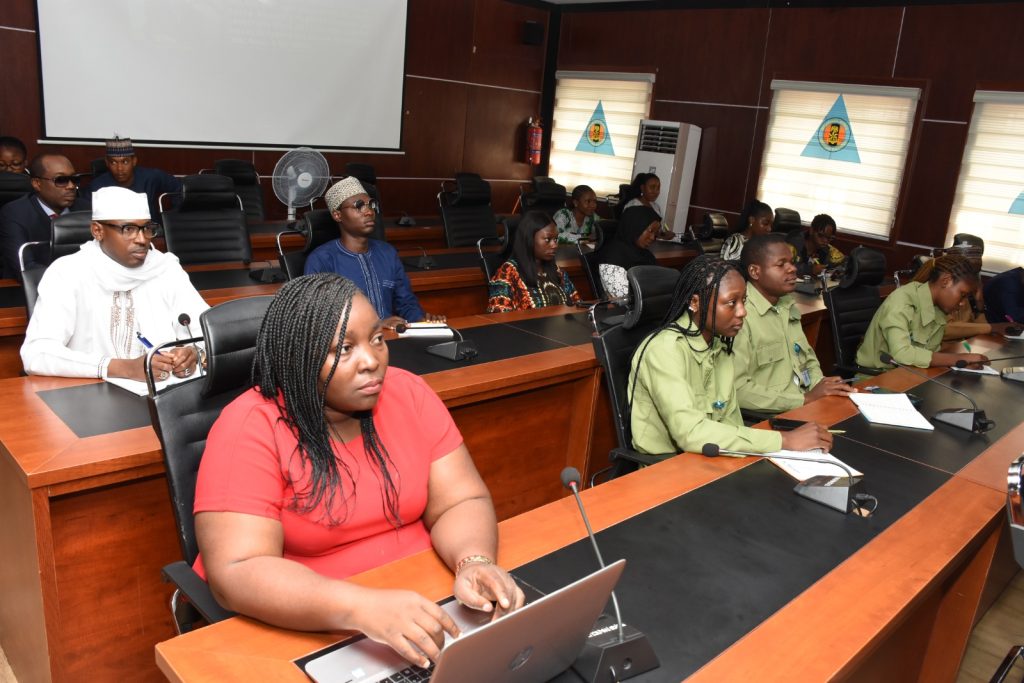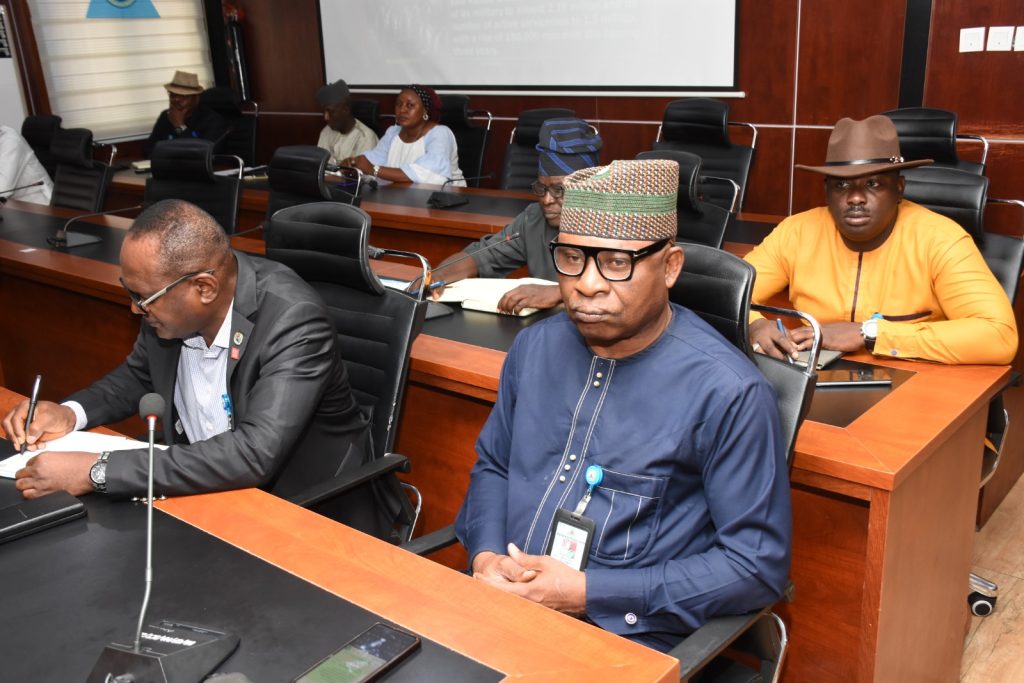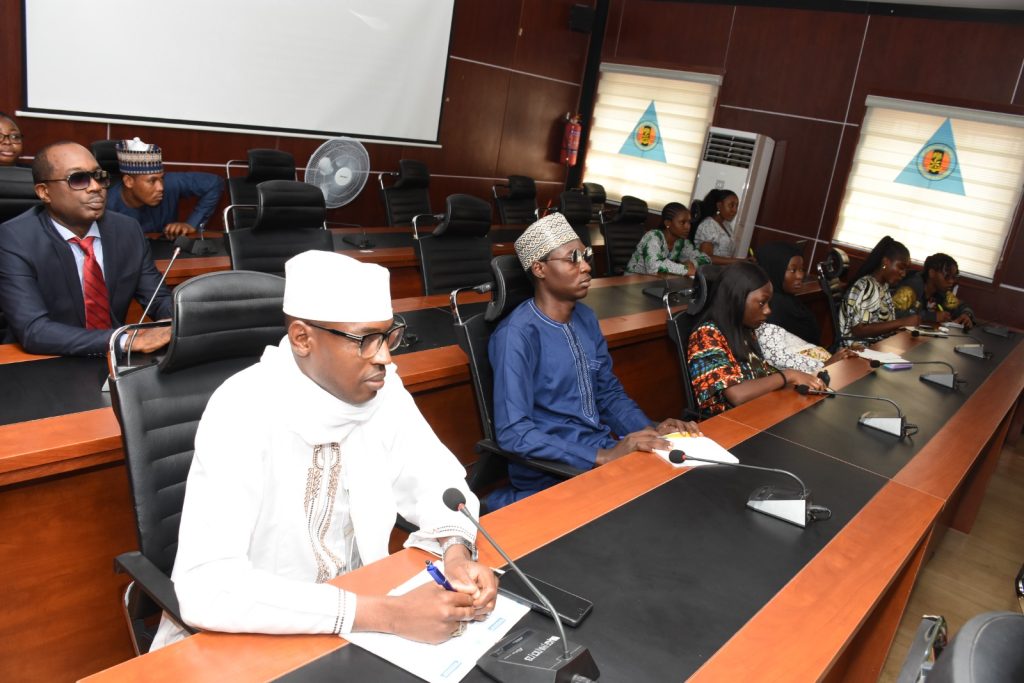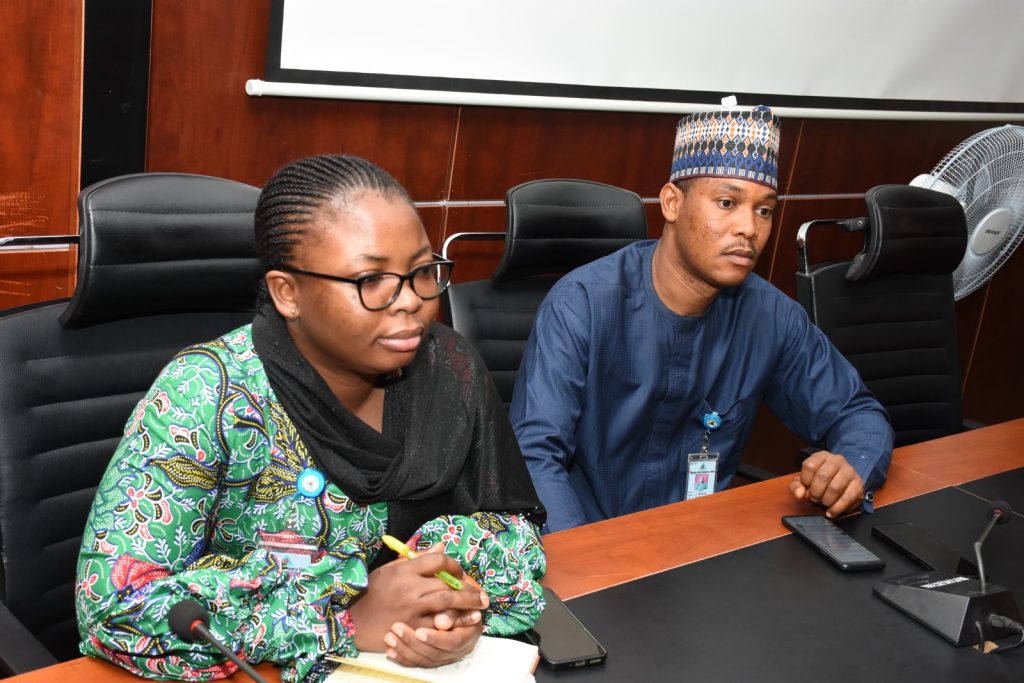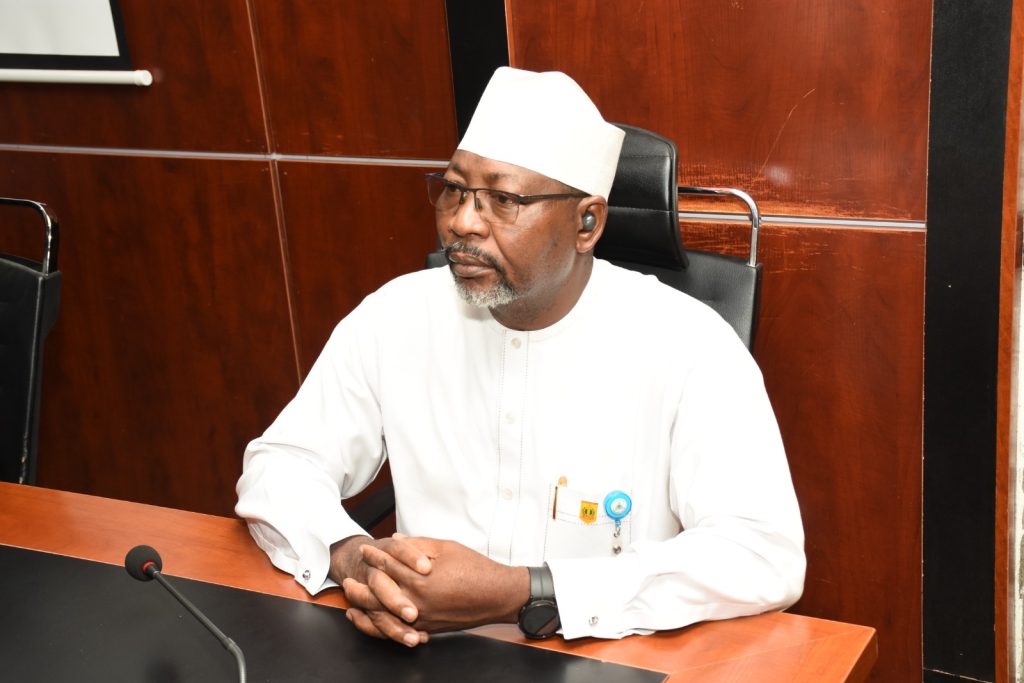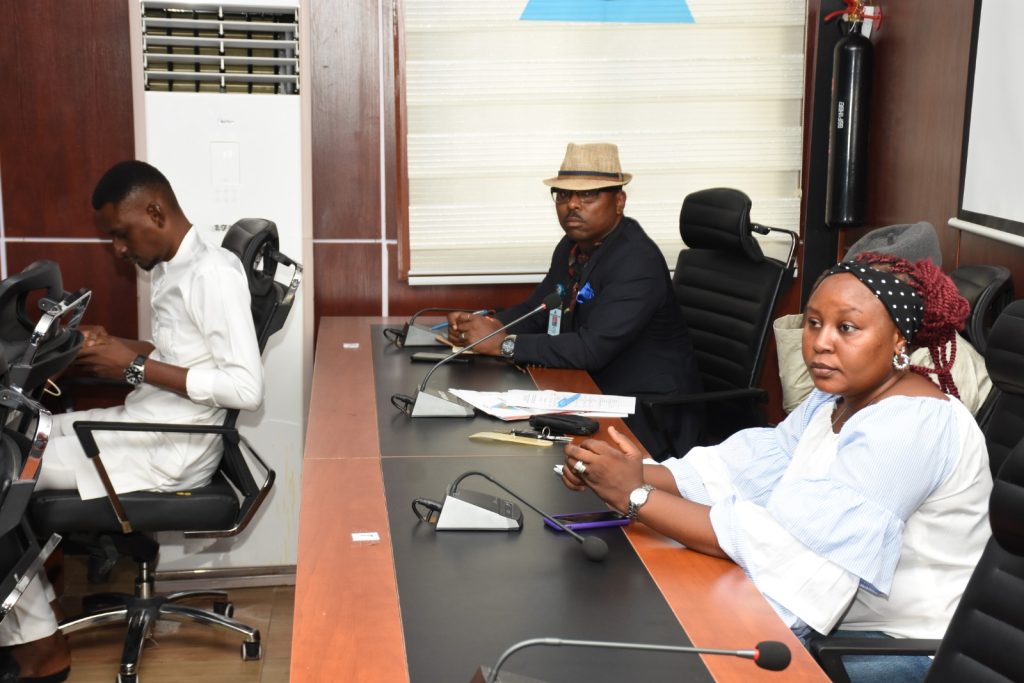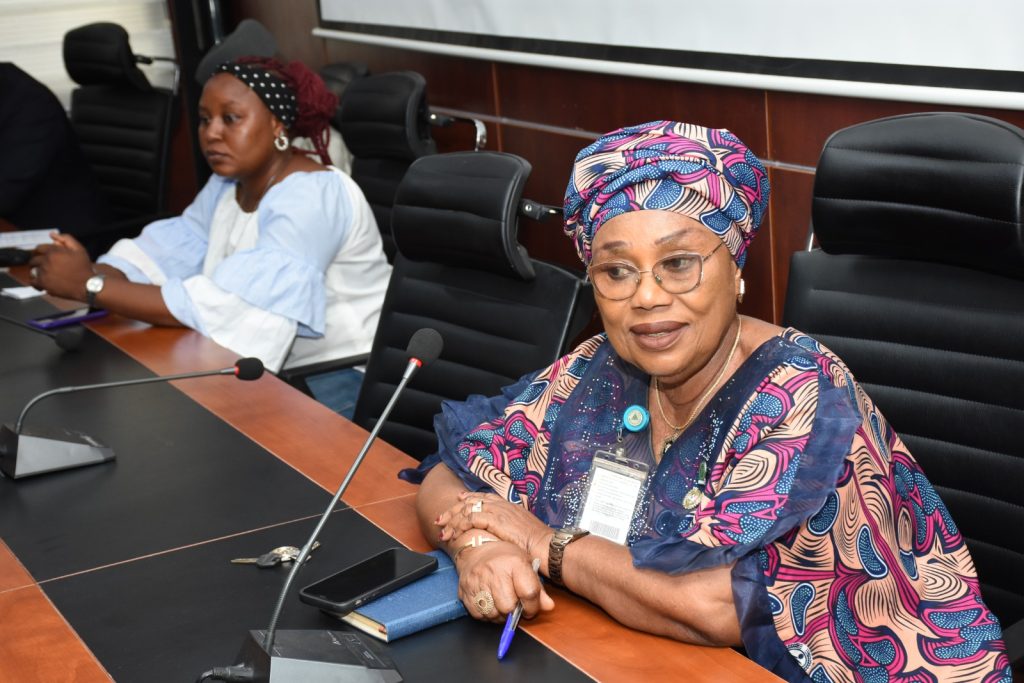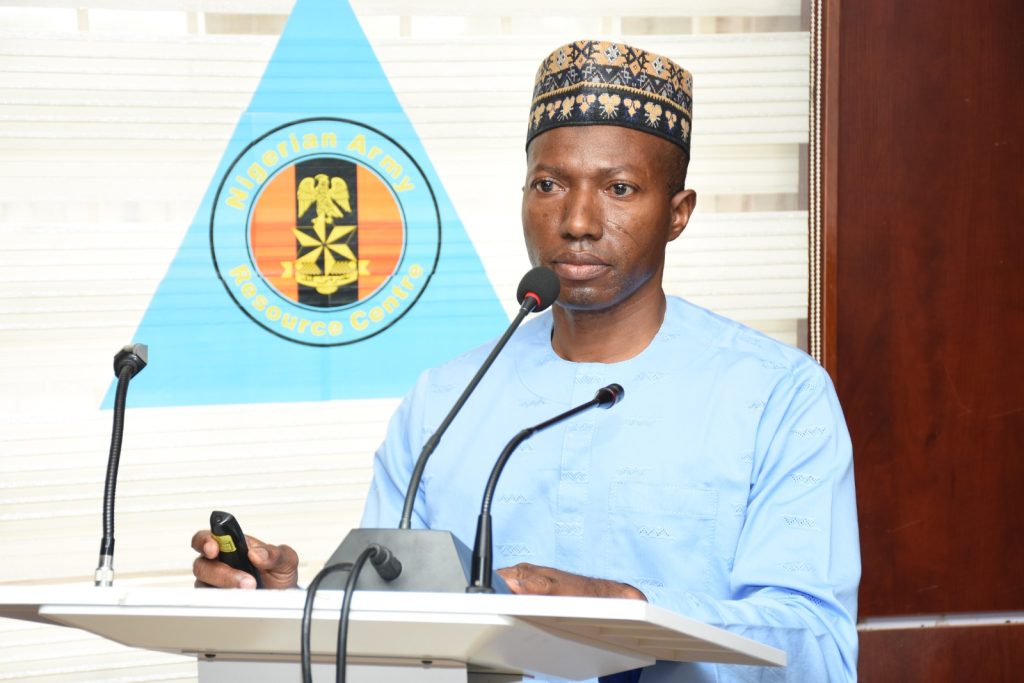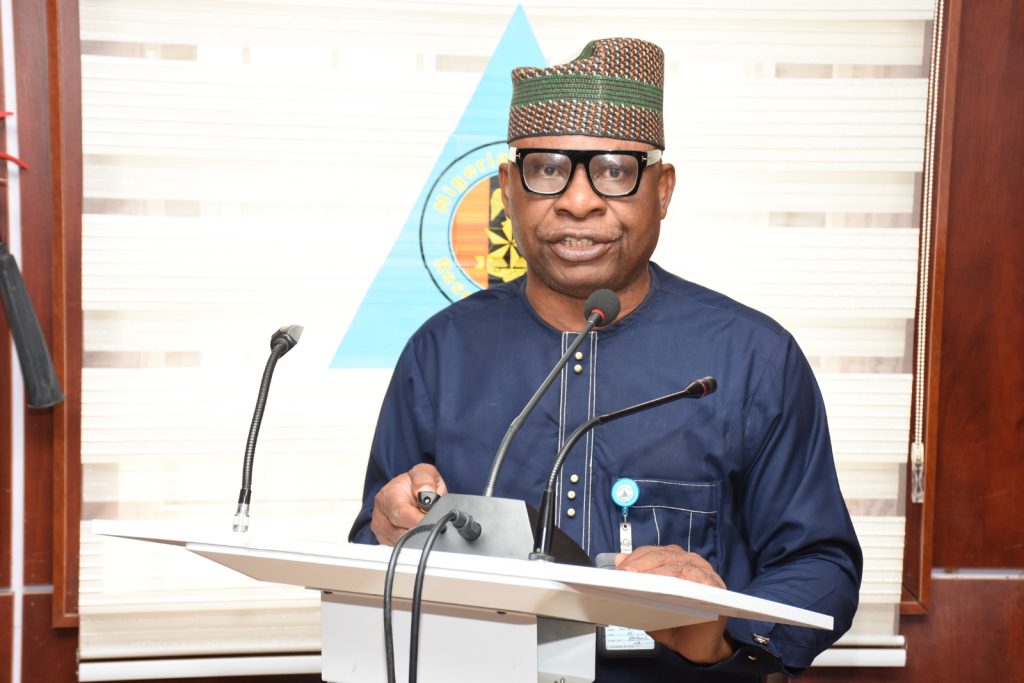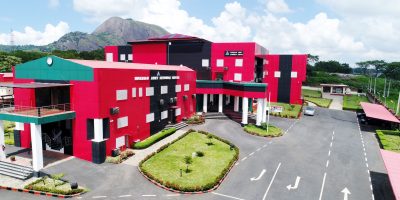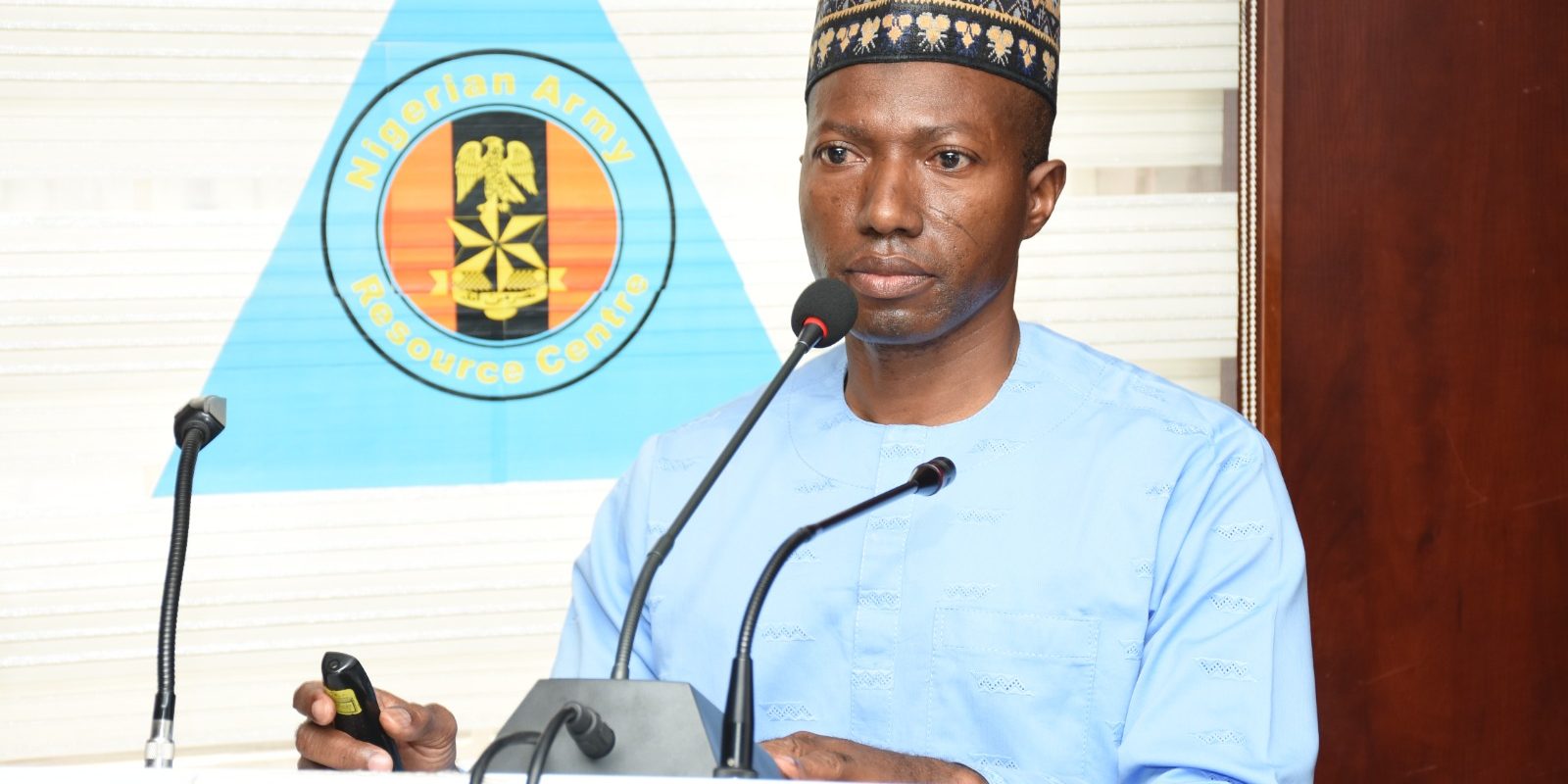Nigerian Army Resource Centre (NARC) Weekly Subject Experts’ Presentation was held at Hall A, TY Buratai Block, Abuja. There were three presentations made by the Subject Experts on Eastern Europe, East and Central Africa and Western Europe.
The first presentation of the day was made by Brig Gen AK Egwuagu (Rtd) subject experts on Eastern Europe. His presentation centered on how Putin Begins Biggest Russian Military Call-Up in Years. President Putin recently called up 160,000 men aged between 18-30 years, being Russia’s highest number of conscripts since 2011, as the country moves to expand the size of its military (BBC News, 1 Apr 2025). The spring call-up for a year’s military service came several months after Putin said Russia should increase the overall size of its military to almost 2.39 million and its number of active servicemen to 1.5 million, with a rise of 180,000 men over the coming three years. Vice Admiral Vladimir Tsimlyansky said the new conscripts would not be sent to fight in Ukraine for what Russia calls its “Special Military Operation”, as there were reports that conscripts were killed in Russia’s border regions when they were sent to fight Ukraine in the early months of the full-scale war. The current draft, which takes place between April and July 2025, comes up despite US’s attempts at forging a ceasefire in the war, but there was no killing in the violence on Tuesday 1st Apr 2025 in which Ukraine claimed that a Russian attack on a power facility in the southern city of Kherson had left 45,000 people without electricity.
In his analysis and lessons for Nigeria, Brig Gen AK Egwuagu (Rtd) pointed out that, A conscript is one who is compulsorily enrolled, often into a military service (Wiktionary). The conscript, also called draftee, recruit, enlistee or Serviceman/woman, is typically required to serve for a specific period, which can vary depending on the country’s laws and policies, and are used to supplement the military personnel needs during times of war or national emergency (Meta AI), With a total population of 143, 997,393 as at today (Meta AI), Russia has been able to sustain its invasion of Ukraine since 2011 which later turned into war in Feb 2022, despite sanctions and massive military support of the US and NATO countries to Ukraine, she has been able to continuously raise the required military strength to fight and achieve her aim, Russia’s military strength is considerable with a ranking of 2nd out of 145 countries in the Global Firepower review boasting a power index of 0.0702 based on various factors, including manpower, equipment and resources (Meta AI), She has 1.2 million active personnel in various branches including the Russian Army, Navy, Aerospace Forces, Airborne Forces and Special Operations Forces as well as 2 million reserve personnel and 250,000 paramilitary forces. The Nigerian military recruits able-bodied citizens by birth or descent between the ages of 18-22 for non-tradesmen/women and 18-26 for tradesmen/women with clean criminal records and not belonging to cults, societies or fraternities. The candidate must possess a Senior Secondary Certificate (SSCE) or equivalent with five credits including Mathematics and English language while the tradesmen/women must have a Trade Test/City & Guild Certificate. The physical and medical requirements include that males must be at least 1.68 meters tall and females 1.65 meters, and must be medically, physically and psychologically fit with no tattoos or bodily inscriptions, With a population of about 237.5 million people, making it the 6th most populous country globally with a projection of reaching 262.4 million in 2030 and 336.7 million by 2045, Nigeria’s security situation has continued to deteriorate over the last two decades with various threats emerging in different regions of the country (Meta AI). From the year 2000-2020, religious fundamentalist groups exploited Nigeria’s governance failures, leading to violent terrorist activities with Boko Haram (BH) emerging as an Islamization agenda, causing widespread destruction and displacement in the NE. BH launched its first attack in 2009, marking the beginning of a significant security and economic threat to the Lake Chad region and from 2010-2021, insurgency, banditry and cattle rustling intensified, resulting in gun violence, terrorism, kidnapping and displacement of settlements (Meta AI). Security challenges peaked up in 2012 with militia groups holding the country hostage and over 3,000 people killed, while in recent years the security situation has remained volatile with BH, armed banditry, kidnapping and secessionist agitators continuing to plague the country, such that 3,707 citizens were killed and 3,238 taken hostage in 2023. Consequently, security challenges have had far-reaching humanitarian crisis leaving over 5 million people displaced, with thousands killed and maimed, destruction of infrastructure, disruption of commercial activities, loss of foreign investment, as well as fear, increased poverty, unemployment and crime rates seriously haunting the country with little or no hope for a better future (Meta AI). It has often been said that radical situations demand radical solutions, hence the Nigerian military having been engaged in the prolonged fight against insecurity without hope for an end to the crisis in the near future, needs to adopt a different approach in tackling the problem to ensure normalcy and lasting peace. Therefore, in the face of the persistent security challenges despite the unwavering efforts of the military, Nigeria could consider the introduction of basic military training for its citizens at the primary and secondary school levels and a compulsory 2-5 years military service for youths between 18-30 years of age, for a period of 10 years to broaden the military base and efforts to permanently address this ugly situation. The military’s current efforts at implementing measures to promote discipline and accountability through mandatory ethics training emphasizing moral values, code of conduct outlining expected behaviour and implementation of disciplinary systems to address breaches of ethics, would be beneficial in inculcating a national mind-set on the youths towards understanding one another and becoming more disciplined and security conscious. Apart from creating the required security awareness, it will also assist in curbing the cancerous corruption tendencies pervading the system, while providing the relevant foundational basic training for the youths and especially those interested in military/civil service, the police and other paramilitary establishments including vigilantes and community policing units for optimal performance. It is common knowledge that NA soldiers virtually doing police duties all over the country are over-stretched and over-whelmed leading to low morale and loss of grounds to terrorists as recently confirmed by Borno State Governor, Prof Zulum who cried out on Apr 9, 2025, saying “We are losing grounds to BH terror attacks” (Channels TV, 9 Apr 2025). Terrorism and kidnapping have continued to blossom in the country as the Chibok girls, Leah Sharibu and others have remained with their kidnappers for many years while Maj Gen RC Duru (Rtd) kidnapped in Imo State since Sep 2023 has remained with his kidnappers till date even after paying a ransom of $50,000. Another horrific case among several others nationwide, is the kidnapping of former DG NYSC, Brig Gen Tsiga (Rtd) with many others in Katsina State on Feb 5, 2025. He was released on Apr 2, 2025 after ransom was paid on him, while the military was able to secure the release of 84 other victims. The traumatizing effect on kidnap victims including those that die in their camps and their families, and the fear it creates among the populace is better imagined and calls for stringent efforts by the FGN to think out of the box and involving everyone towards a new and workable strategy to address this unpalatable situation. There is therefore the need to review the recruitment process and requirements of the NA including age, height and qualification in order to accommodate the teeming Nigerian youths roaming the streets of unemployment as ready tools for recruitment into terrorists, insurgents, secessionists and kidnappers camps. There is also the need to review the involvement of the NN and NAF on land operations with a view to encouraging NA’s recruitment and training of more personnel for its constitutional roles while the other two services are directed to concentrate on theirs. There is need for mass recruitment into the NA and emphasizing basic military training at the primary and secondary school levels while introducing a 2-5 years compulsory military service for the youths over the next 10 years to holistically address security challenges towards ensuring normalcy and lasting peace in the country.
He recommended that: The Federal Government of Nigeria and NASS should consider the introduction of basic military training at the primary and secondary school levels, The Federal Government of Nigeria and NASS should approve a 2-5-year compulsory military service for all able-bodied Nigerian youths between the ages of 18-30 over a 10-year period and also the Nigerian Army, should review its recruitment process and requirements especially on age, height and educational qualifications to accommodate many unemployed youths.
The second presentation of the day was made by Brig Gen ED Idimah subject experts on East and Central Africa. His presentation Focused on the New Strategy Launched to Protect Tanzania Biodiversity Hot Spot. On 02 April, 2025, a wildlife journalist, Mr. Ryan Truscott reported that conservationists have launched a 20-year-long project to protect what is arguably Tanzania’s most biologically rich landscape: the Udzungwa Mountains. The strategy, places notable emphasis on communities living here, with more than half of its budget allocated to social and economic projects and managing human-wildlife conflict. The Udzungwa Mountains’ evergreen forests, woodlands, and grasslands are home to plants and animals found nowhere else on Earth, Scientists, however, estimate that over the last 2,000 years, the massif has lost more than three-quarters of its forest cover. In the past century, the expansion of small-scale farming, tea and exotic timber plantations, and hardwood logging have been primary drivers of deforestation.
In his analysis and lessons for Nigeria, Brig Gen ED Idimah noted that, a biodiversity hotspot is a region that is both rich in species and under significant threat from human activities.
These areas are considered vital for conservation because they contain a high number of endemic species (species that are found nowhere else) and have lost a large portion of their original habitat, often due to deforestation, agriculture, or urban development, to qualify as a biodiversity hotspot, a region must meet two criteria: It must have at least 1,500 species of vascular plants as endemics (plants that exist only in that region), it must have lost at least 70% of its original natural vegetation. Examples of biodiversity hotspots include the Amazon Rainforest, the Himalayas, Madagascar region and Cross River Rain Forest. These hotspots are key areas for conservation efforts due to their importance in maintaining global biodiversity. Biodiversity hotspots are critical areas that harbor a wealth of species, many of which are endemic to specific regions. These hotspots are invaluable for maintaining ecological balance and ensuring the survival of species essential to human survival, such as those involved in pollination, soil fertility, and carbon sequestration. In Nigeria, biodiversity hotspots such as the Niger Delta, the Cross River Rainforest, and the Jos Plateau are under increasing threat due to human activities. Despite this, Nigeria has made strides in biodiversity conservation through national policies and international collaborations. However, more urgent and comprehensive actions are needed to protect its biodiversity hotspots.
The Importance of Nigeria’s Biodiversity Hotspots, is recognized for having a diverse range of ecosystems, including tropical rainforests, savannas, wetlands, and mountainous regions. These ecosystems are home to a wide array of flora and fauna, many of which are endemic. Notably, Nigeria’s Cross River Rainforest is one of the world’s most biodiverse regions and is home to critically endangered species such as the Cross River gorilla (Gorilla gorilla diehli) (Bassey et al., 2012). Similarly, the Niger Delta is an ecologically significant region, with extensive mangrove swamps that support various plant and animal species (Nwankwoala, 2011). Biodiversity hotspots like these contribute to global ecological health by stabilizing climate systems, supporting food chains, and providing essential ecosystem services (Myers et al., 2000). They are also crucial for local economies, particularly in rural areas where agriculture, fishing, and tourism are primary livelihood sources (IUCN, 2020).
Threats to Biodiversity Hotspots in Nigeria are Deforestation and Habitat Destruction: The rapid expansion of agriculture and urbanization in Nigeria has led to widespread deforestation, particularly in the Cross River Rainforest. Logging, agricultural expansion, and the construction of infrastructure have reduced the size and quality of forest habitats, making it difficult for species to survive (Denton et al., 2018). Oil Exploration and Pollution; The Niger Delta, one of Nigeria’s most important biodiversity hotspots, has been significantly impacted by oil extraction activities. Oil spills, gas flaring, and the destruction of wetlands have caused long-lasting environmental damage, reducing biodiversity and affecting the livelihoods of local communities (Okereke et al., 2015). Climate Change: Nigeria’s biodiversity is also vulnerable to the effects of climate change, which exacerbates the loss of habitat and disrupts migration patterns. Alterations in rainfall and temperature affect the viability of ecosystems such as the savannas and wetlands (Norton-Griffiths, 2014). Over-exploitation of Resources: Over-hunting, illegal wildlife trade, and unsustainable agricultural practices put additional pressure on the biodiversity of Nigeria’s hotspots. For example, the hunting of the Cross River gorilla for bush meat remains a significant threat to its survival (Bassey et al., 2012). Strategies for Protecting Nigeria’s Biodiversity Hotspots includes, Strengthening Legal Frameworks; Nigeria has several national policies aimed at conservation, including the National Biodiversity Strategy and Action Plan (NBSAP) and the Environmental Impact Assessment (EIA) Act. However, implementation remains weak. Strengthening enforcement of these laws, particularly those addressing illegal logging and poaching, is crucial. There is also a need for the creation of more protected areas and the expansion of existing ones, particularly in biodiversity hotspots. Community-Based Conservation: Local communities play an essential role in conservation efforts. Engaging indigenous populations and local stakeholders in conservation initiatives can improve the effectiveness of protection measures. Programs such as eco-tourism, sustainable agriculture, and alternative livelihoods can be incorporated to incentivize the local population to protect their natural environment (Salafsky et al., 2001). Restoration of Degraded Habitats: Restoring degraded ecosystems through reforestation and the rehabilitation of wetlands can help restore biodiversity in threatened hotspots. In the Niger Delta, for example, efforts to rehabilitate mangrove ecosystems could help to recover the region’s rich biodiversity (Nwankwoala, 2011). Increased Funding and International Collaboration: Nigeria must seek to increase funding for conservation initiatives. This can be achieved through partnerships with international conservation organizations such as the World Wildlife Fund (WWF) and the International Union for Conservation of Nature (IUCN). Financial support for research, policy development, and conservation infrastructure is critical for sustainable biodiversity management (Sachs et al., 2019), Education and Awareness Campaigns: Raising awareness about the importance of biodiversity conservation and the specific challenges facing Nigeria’s biodiversity hotspots is crucial. Educational programs for the general public, policymakers, and local communities can help foster a culture of conservation and environmental stewardship (Norton-Griffiths, 2014). Nigeria can learn several important lessons from Tanzania regarding the protection of its biodiversity. Community involvement and empowerment, eco-tourism development, and a comprehensive system of protected areas are all crucial for effective conservation. By engaging local communities in conservation efforts, promoting eco-tourism, and establishing protected areas, Nigeria can protect its biodiversity hotspots and contribute to global conservation efforts. Protecting Nigeria’s biodiversity hotspots requires a multi-faceted approach that addresses the significant threats facing these regions. By strengthening legal frameworks, promoting community-based conservation, restoring degraded habitats, and increasing funding and international collaboration, Nigeria can safeguard its biodiversity hotspots and contribute to global conservation efforts.
He recommended that, The Nigerian Army Resource Centre should recommend that: The Federal Government of Nigeria should enhance enforcement of conservation laws to combat illegal activities like logging, poaching, and land conversion, The Federal Government should involve local communities in eco-tourism initiatives, providing alternative livelihoods and promoting community-based conservation and The Federal Ministry of Environment should strengthen partnerships with international conservation organizations like the World Wildlife Fund (WWF) and the International Union of Conservation of Nature (IUCN).
The third presentation of the day was made by Brig Gen YI Tukura Subject Expert Western Europe. His Presentation Centered on Dutch Government to Screen Thousands of Researchers over Espionage Fears. On 8 April 2025, NL Times reported that the Dutch government has proposed a new law to introduce stringent security checks for scientists and students working in sensitive technological fields. The initiative, submitted to the lower house of the bicameral parliament of the Netherlands by the Education Minister Eppo Bruins (NSC), aims to prevent foreign powers like China, Russia and Iran from accessing strategic Dutch research. If passed, the law would require mandatory background screenings for approximately 8,000 individuals annually – both Dutch and foreign – before they are allowed to engage in high-risk research. The vetting process, to be handled by the Justis Agency, would involve criminal records, education, employment, family ties and possible connections to foreign regimes. For scientists, evaluations would include extensive reviews of personal and professional histories. Bruins emphasized the need for all nationalities to undergo screening to avoid discrimination and counter the risk of espionage even by Dutch citizens. Currently, institutions conduct their risk assessments but lack access to critical security data. A recent National Occupational Standards (NOS) investigation revealed hundreds of cancelled academic collaborations due to security concerns. The new legislation would centralize and intensify these efforts, particularly in fields like AI, biotechnology, microchips, quantum computing and missile technology.
In his analysis and lessons for Nigeria, Brig Gen YI Tukura stated that: Espionage, commonly known as spying, involves the clandestine gathering of confidential information without the consent of the holder of the information. Espionage in Nigeria, like in other nations, involves the covert gathering of sensitive information, often by foreign intelligence services, political actors, insurgent groups, or even internal actors seeking to undermine national security. While the full scope of espionage in Nigeria is difficult to ascertain publicly, there have been several reported and suspected incidents over the years, particularly about terrorism, oil theft, political sabotage, and cyber-espionage. Nigeria faces complex espionage threats that could jeopardize its national security and economic stability. Foreign intelligence agencies have shown interest in Nigeria’s strategic sectors, particularly the oil and gas industry due to its significant contribution to the global energy supply. Cyber espionage has emerged as a prominent threat with hackers targeting critical infrastructures in the financial and telecommunications sectors. A report by Cybervergent revealed that within 6 months in 2024, Nigerian financial institutions faced approximately 586,130 cyber threats, underscoring the severity of the situation (Cybervergent, 2024). Additionally, insurgent groups operating within Nigeria have engaged in intelligence-gathering activities, further complicating the internal security dynamics. Recognizing the dangers of espionage, Nigeria has established some institutions to combat espionage and related threats. These includes: the Department of State Services (DSS), the National Intelligence Agency (NIA) and the Defence Intelligence Agency (DIA). These agencies are tasked with intelligence collection, analysis and counter-espionage operations. Legally, the Cybercrimes Act of 2015 serves as the cornerstone legislation addressing cyber-related offenses. The Act provides a comprehensive framework for the prohibition, prevention, detection, prosecution and punishment of cybercrimes in Nigeria. Despite these measures, challenges persist, particularly in the enforcement of laws and coordination among agencies, leading to jurisdictional overlaps and inefficiencies. The proliferation of digital technologies has exponentially increased Nigeria’s vulnerability to cyber espionage. Critical sectors such as oil and gas, telecommunications, and finance have become prime targets for cybercriminals. It is evident that while various cyber security regulations exist, their enforcement remains inconsistent, leaving the industry susceptible to sophisticated cyber-attacks (Ogbemudia, 2024). Furthermore, the reliance on foreign technological infrastructure raises concerns about potential backdoors and unauthorized data access, especially when such equipment is sourced from nations with vested interests in Nigeria’s strategic sectors (Ogbemudia, 2024). Notable instances of espionage involving Nigeria includes: allegations of unauthorized data transmissions linked to foreign-donated technological equipment. For example, concerns have been raised about Chinese-donated computers potentially serving as conduits for espionage activities in various African nations (Santariano, 2020). Nigeria has faced increasing threats from cyber-espionage, particularly targeting government institutions, the banking sector and the military. In 2020, Microsoft identified Nigerian government institutions as targets of a Chinese cyber-espionage group, GALLIUM (Microsoft Threat Intelligence, 2020). While some of the cases in Nigeria remain underreported, the potential for such occurrences is massive. Internationally, the 2018 allegations of China’s espionage through the African Union’s Headquarters highlight the risks associated with foreign technological dependencies. Consequently, Nigeria can learn the importance of implementing thorough security screenings for researchers and students involved in sensitive technologies to protect national interests. Establishing centralized vetting processes with intelligence agency input can prevent intellectual property theft and foreign espionage. The Dutch model shows that even domestic individuals can pose security risks, highlighting the need for inclusive checks. Nigeria should also balance security with academic openness to retain global talent. Furthermore, Nigeria could invest in modernizing the capacity of its intelligence agencies. This includes acquiring advanced surveillance technologies, improving data analysis capabilities and conducting specialized training for operatives in counter-espionage tactics. Hence, the National Intelligence Agency (NIA) and Defence Intelligence Agency (DIA) could establish a yearly capacity-building program in advanced cyber intelligence and digital forensics. The international collaboration remains a powerful tool in counter-espionage, as no country can confront modern security threats in isolation. Nigeria must strengthen bilateral and multilateral ties to facilitate intelligence sharing, joint training and coordinated cybersecurity responses. Therefore, the Ministry of Foreign Affairs and the Office of the National Security Adviser (ONSA) could expand regional intelligence-sharing treaties under ECOWAS and AU frameworks. Correspondingly, educating both the public and the private sector on espionage threats is essential. Thus, businesses and individuals often serve as the weakest links in the national security chain. Awareness campaigns could emphasize safe cyber practices, data protection and the importance of reporting suspicious activities to relevant authorities. Thus, the National Orientation Agency (NOA) and the Nigerian Communications Commission (NCC) could jointly launch a national public awareness program on cybersecurity and anti-espionage vigilance. Espionage remains a pressing challenge to Nigeria’s national security and development. As the landscape of threats evolves, so must the strategies to combat them. Through a combination of robust institutional frameworks, updated legal provisions, international cooperation and public engagement, Nigeria could fortify its defences against espionage and safeguard its sovereignty and developmental aspirations.
He recommended that, The Nigerian Army Resource Centre should therefore recommend as follows: The NIA and DIA should establish a yearly capacity-building program in advanced cyber intelligence and digital forensics, the Ministry of Foreign Affairs and ONSA should expand regional intelligence-sharing treaties under ECOWAS and AU frameworks and also the NOA and NCC should jointly launch a national public awareness program on cyber security and anti-espionage vigilance.
